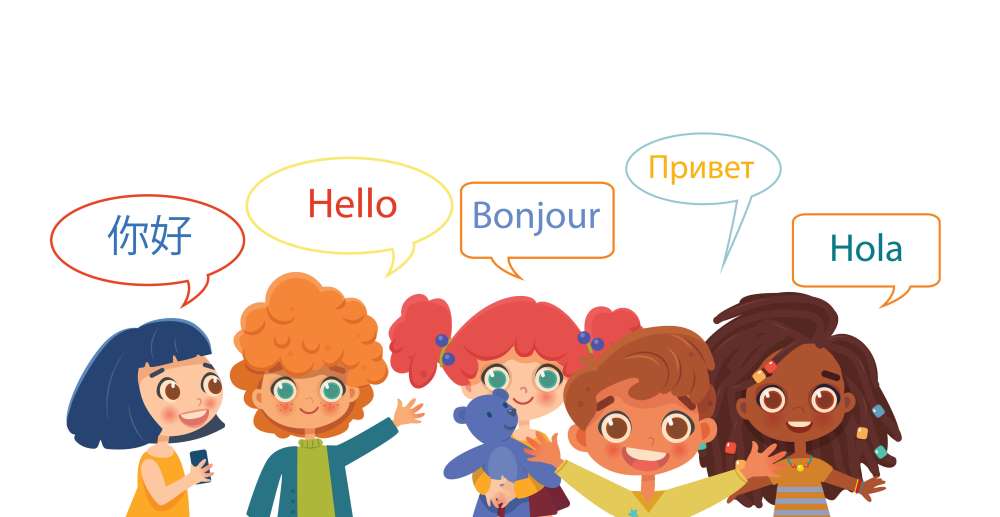
In an increasingly online world, people from all over the globe are now able to connect and communicate with more ease than ever before. Having your children learn a second language is a great way to ensure that they have a competitive edge in a global business market, and are able to communicate with other cultures.
A common misconception in the past has been that teaching kids multiple languages can cause confusion or language delay; however, new studies undertaken at the Cornell Language Acquisition Lab have shown that children who speak a second language actually have a better ability to maintain attention when outside stimuli are present. Another recent study, from researchers at the University of Strathclyde in Glasgow, found that children who speak more than one language have improved mathematical, problem-solving, and creative thinking skills than their counterparts who only speak one language.
Whether you’re a bilingual family already, or you’d just like your kids to experience the benefits of learning multiple languages, there are a few effective ways to help teach your little ones a new language.
-
Consider private tutoring
Among the most straightforward ways to help your children learn a second language is through a private tutoring service.
Studies have shown that tutoring programs have positive impacts on the academic performance of students, and that students who receive tutoring for beginners language classes are more likely to have a positive attitude toward what they’re learning. To find a tutor who’s right for your children, look at potential tutors’ reviews and qualifications, and have a quick discussion to ensure they have a temperament that’s compatible with your family. Sites such as preply.com allow you to access a wide range of available tutors, and filter them by price, availability, and skill, in order to ensure that you find the right tutor for your family.
Although having more than one child join a tutoring session may be tempting, consider using the 1-2-1 tutoring method, which allows each child to receive one-on-one attention. A reputable tutor will be able to tailor their approach to your kids, and update you frequently on their progress.
-
Create immersive environments
One of the most effective ways to teach a child a second language is to immerse them in environments where that language is spoken.
If you primarily speak English outside your home, but use a different native language at home, using phrases from both around your children can help them become accustomed to the differences while learning both. If you don’t speak a second language, but you have family who do, try to encourage your kids to spend time with them in order to expose them to that culture and dialect. The earlier a child is exposed to an immersive second language environment, the more likely it is that they’ll gain native-level proficiency in that language.
According to linguistics expert and professor of human development, Barbara Lust, and her research partner Sujin Yang, children who learn a second language in an immersive environment can demonstrate grammatical knowledge of the second language at the same level as a native speaker.
-
Download language learning software
If your kids prefer to learn on their own, or you’d like to fit in bite-sized language lessons for them during the school commute or as an after-dinner activity, consider downloading language learning software. There are various programs and apps available which allow children to learn at their own pace, and review previous lessons at will; this can allow them to feel more in control of their language education.
Particularly when your children start learning a second language early, don’t be concerned if they start to mix languages by using words and phrases from each. This is a good sign that their new language skills are being embedded for everyday use.
-
Incorporate foreign language into daily life
Raising bilingual children can feel daunting if you aren’t fluent in a second language yourself; however, you can still play an important part in developing your kids' new language skills.
Make sure to learn a few words yourself, and start using them at home with your kids; consider watching movies in the language that your children are learning (with subtitles for yourself,); look for board games that have elements of both languages. Ask your kids to teach you some phrases too; they’ll likely jump at the chance to play tutor, and learning new words together can be a fun bonding activity.
There are many ways to help teach your kids a new language, whether you speak the dialect yourself or not.
By understanding how you can incorporate foreign words into daily life, and what professional help is available for a more comprehensive education, you can ensure that your children are given every opportunity to become fluent in a second language.



























